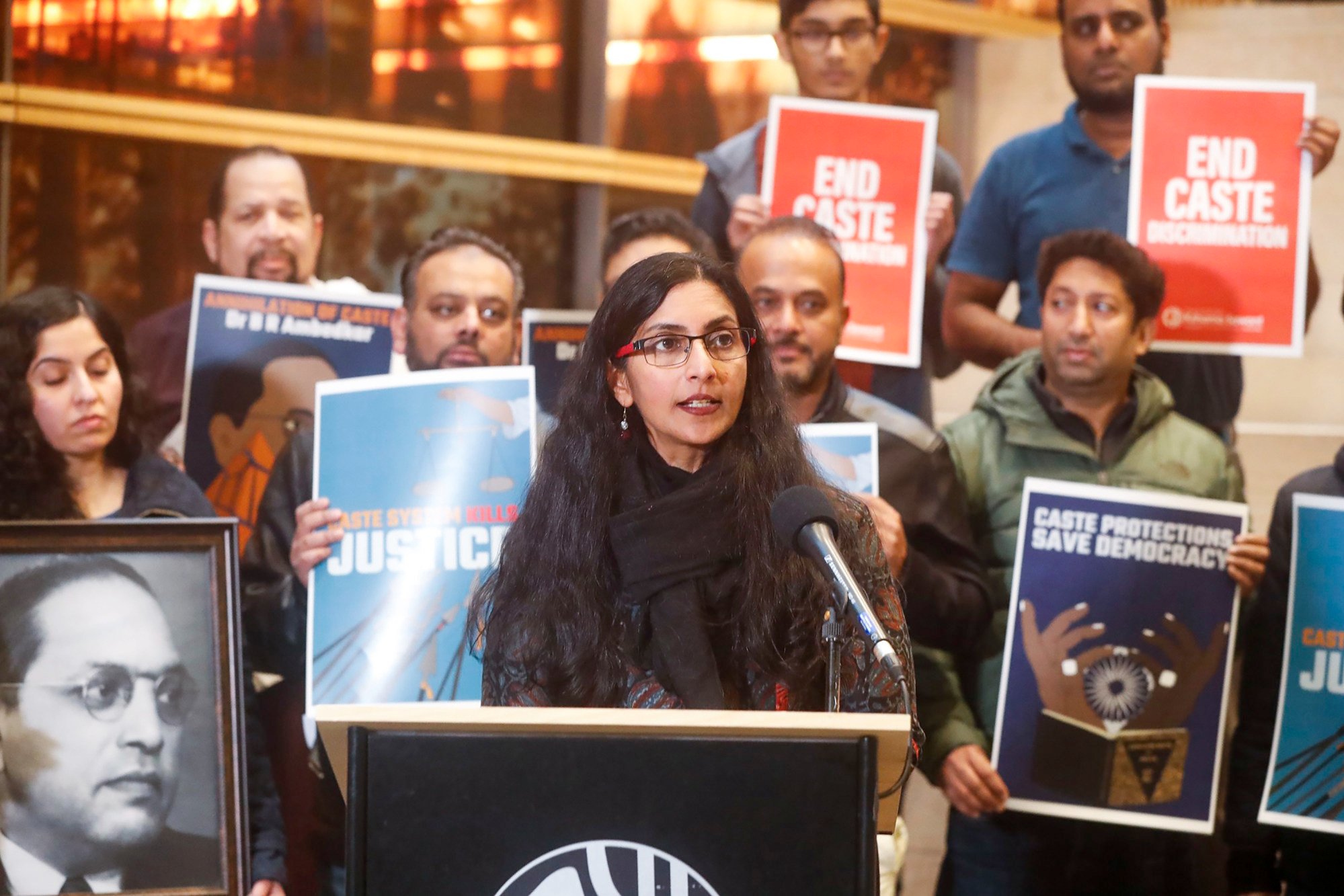
Indian-Americans in Seattle cheer ban on caste discrimination ‘virus’ that oppresses Dalits
- The law, passed in the US’ largest tech hub where thousands of Indians work, bans caste discrimination in workplaces, housing and public spaces
- The United States is home to the second-largest diaspora of Indians living abroad, with as many as 4.2 million calling the country home
The law, passed on February 21, bans caste discrimination in workplaces, housing and public spaces such as transport, hotels, public restrooms, and retail establishments. It came about after a years-long campaign by rights groups and that was pushed by councilwoman Kshama Sawant.
“The fight against caste discrimination is deeply connected to the fight against all forms of oppression,” said Sawant, an upper-caste Hindu Brahmin.

Shailaja Paik, an associate professor of history at the University of Cincinnati, called the ordinance “a big victory in creating an environment that is respectful, fair, and just”.
“It is historic in fighting the mutating, shape-shifting caste virus that has trans-nationalised in an unprecedented manner in the 21st century,” Paik said.
Caste is an issue in Seattle, home to the nation’s largest tech hub where thousands of Indians work. Washington state has more than 150,000 South Asian residents, many based in the Seattle area, according to The Washington Post. The vote was preceded by many public committee hearings and letters that showed the effects of caste discrimination in the workplace.
‘Like a disease’: Indians in the US lament Dalit caste discrimination
The US is home to the second-largest diaspora of Indians living abroad, with as many as 4.2 million calling the country home, some of whom continue to adhere to the caste system.
A survey conducted by Dalit rights organisation Equality Labs in 2018 found that many oppressed caste members of South Asian diaspora communities had reported facing casteism. Equality Labs’ director Thenmozhi Soundararajan told The Washington Post her organisation has received complaints from hundreds of workers alleging “caste slurs in workplaces, bullying and harassment, sexual harassment, demotion to retaliation and even firing”.
India’s ‘untouchable’ women face rejection from schemes meant to help them
Two legal cases in recent times brought the issue into sharp focus in the US. The first lawsuit, filed in June 2020 against software firm Cisco Systems, alleged that the company failed to address caste discrimination a Dalit employee faced from two supervisors of privileged castes. In another lawsuit filed in May 2021 against BAPS, a Hindu trust and non-profit organisation, a group of Dalits claimed they were brought to the US as religious workers and forced into underpaid, exploitative construction work at a Hindu temple in New Jersey.
Activist Anil Wagde said Seattle’s ordinance marked the first time casteism was acknowledged in a foreign country. “This is historic because it is the first time there is an explicit acknowledgement of the caste system existing beyond India,” said Wagde, who works with the Ambedkar International Centre, a US civil rights group that fights caste oppression.

Not everyone is happy about the Seattle council’s step. The Hindu American Federation based in Washington DC said in a public statement that while the ordinance’s goals were praiseworthy, it “unfairly singles out and targets an entire community on the basis of their national origin and ancestry for disparate treatment and was against core Hindu principles of the divine oneness of all beings”.
Bharat Ranjan, an Indian-American who works in the tech sector in Seattle, dismissed the law and denied casteism existed.
“I think it’s all virtue-signalling and has no impact in real life,” he said. “It’s not even proven there is caste discrimination and is impossible to detect or prove. Another waste of taxpayer money.”
Can a caste census in India help reduce inequality, discrimination?
But anti-caste activist Wagde, who currently leads the efforts in several caste discrimination cases, noted that the issue was something US institutions were increasingly taking a stand about.
“Many universities have incorporated caste in their non-discrimination policy, including Brown University and the California State University,” he said. “Now Seattle city council has given it legal sanctity.”
He urged Hindus to take time to “introspect and put in corrective action”.
“Discrimination on the basis of caste has to end,” Wagde said.

